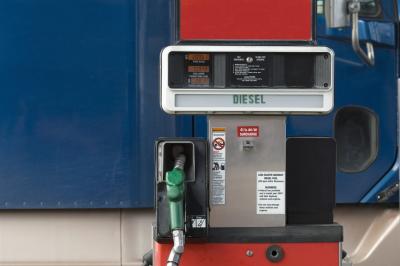
A popular fuel source, diesel is used in diesel engines, which are primarily found in larger vehicles and trucks. Some cars, as well as some power and heating equipment, also use diesel fuel. While there is some debate about whether gas or diesel is a better fuel source, diesel itself has some distinct disadvantages that should be considered when evaluating its use.
In most countries, diesel costs less than gas, but the long-term costs far outweigh the lower retail price. Diesel engines are less versatile, energetic and fuel efficient than gas engines. Because of this, they require more fuel in the long run, resulting in considerably higher costs. The specialized storage required for diesel also adds to the costs.
One type of diesel fuel, called biodiesel, is produced from agricultural products, such as vegetable oils. Biodiesel production requires huge amounts of farmland, thus lowering the total amount of farmland worldwide devoted to growing food crops. The production of crops used to make biodiesel can also damage farmlands.
Diesel, with its greater viscosity than gas, is cruder and messier. It is much easier to spill and slower to evaporate once spilled, making it easy for dirt and dust to settle on it. Diesel in its usable form is generally putrid. Diesel also emits dirty black smoke when used to run an engine. This is unpleasant to breathe in and to see and can cause air pollution.
Diesel engines are noisier than petrol engines. Despite substantial advances in diesel-engine technology, diesel engines still remain louder as a result of the way the fuel is processed and the manner in which the fuel provides energy.